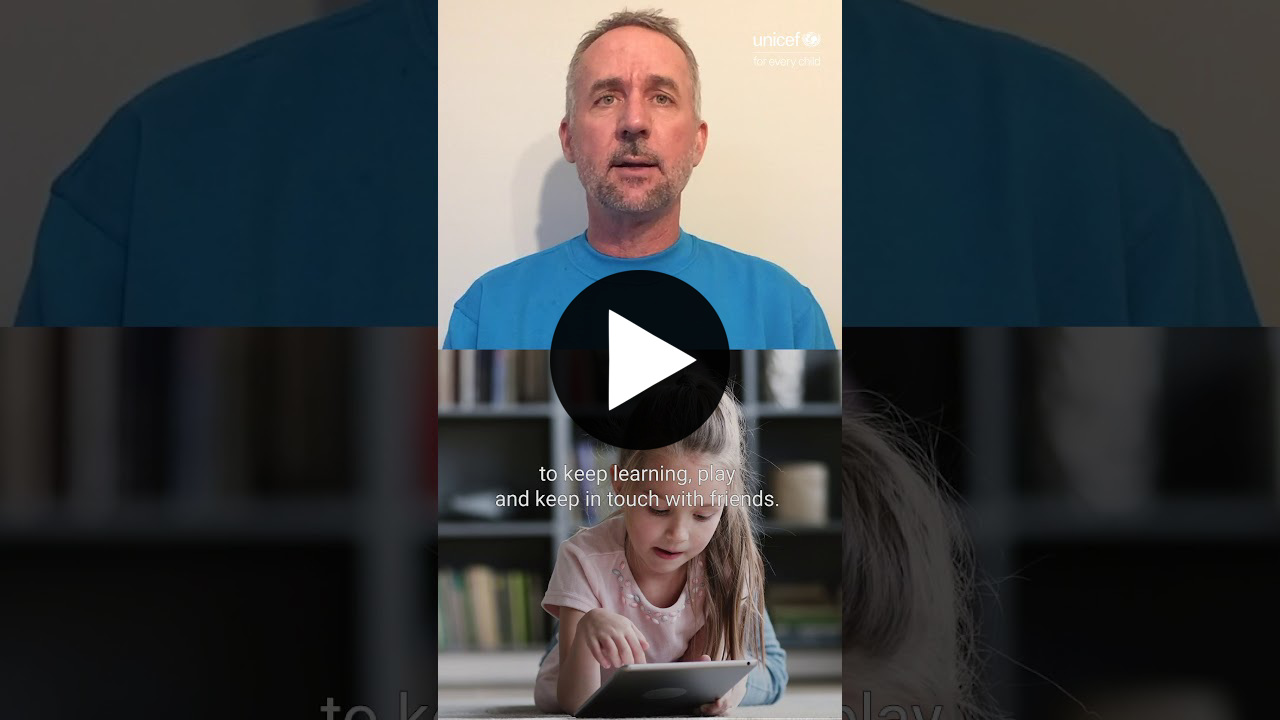
Almost one in four children have feelings of anxiety and distress due to changed routines by COVID-19. A recent survey by Save the Children showed that up to 65% of the children struggled with boredom and feelings of isolation.
Even though many countries gradually start lifting their lockdowns, many schools remain closed – affecting almost 1.3 billion children and students worldwide. Also social restrictions are likely to remain in place in several countries.
Children who lack social support or whose families are already facing difficulties are especially vulnerable in this situation.
Research shows that it is common in any epidemic to feel helplessness or loneliness and have fear of being socially excluded, stigmatised or separated from family. Prolonged stress, boredom, social isolation and lack of outdoor play can lead to a higher number of mental health conditions in children, eg. anxiety and depression.
Anne-Sophie Dybdal, Senior Child Protection Advisor at the Mental Health and Psychosocial Support Unit of Save the Children, said:
“People who are outside regularly have a lower activity in the part of the brain that focuses on repetitive negative emotions. This is one of the reasons children can slide into negative feelings or even depression during the circumstances they are living in now.”
According to the survey, being unable to play outside with friends or fears of falling behind in their education, adds to children’s feelings of deprivation and anxiety. The surveys also revealed that:
- 49% of interviewed children said they were worried (USA)
- 70% of participating children reported experiencing feelings of anxiety (Finland)
- 60% worried that a relative might fall sick (UK)
- 33% of children were worried they would not be able to finish their school year (Germany)
- 25% reported higher levels of distress than normal (Spain)
- 66% of the children reported they were worried, especially of falling ill with the virus (Indonesia)
Marie Dahl, Head of Save the Children’s Mental Health & Psychosocial Support Unit, said: “While children are resilient, we cannot underestimate the impact the pandemic is having on their mental wellbeing and overall health. Children in a stable environment are likely to fare better, but many children are not so fortunate. The mental health impacts of COVID-19 could be seen far beyond the life of the pandemic.”
Save the Children is calling for:
- All children to have access to support services during and after lockdown
- Schools to monitor children during lockdowns and continue case management through remote approaches. This includes ensuring distance learning accessible for all children, which should contain messages on health, hygiene and keeping safe.
- Families and teachers must receive support to maintain structure and routine for the children, and to keep children engaged in play and learning activities in school and at home.
- Mechanisms to be in place for early detection of signs, such as sudden changes in behaviour, unusual persistent sadness, excessive worry, a lack of concentration, trouble sleeping, or exhaustion, which could point towards looming mental health issues such as a depression.
See how Kindiedays can ensure distance learning!
Marie Dahl from Save the Children continued:
“Children are suffering enormous upheaval on a scale that we have not seen in this lifetime. There have been many sudden changes to their lives and so much is yet unknown about the long-term impacts of this crisis, which requires us to be vigilant and do everything possible to limit the impact on young minds”
“While some countries are starting to re-open schools, many children are still missing out on an education. It’s important that all countries are able to detect and respond to signs of distress and depression among children during lockdown and once these children return to public life.”
.png)

.png)
.png)
